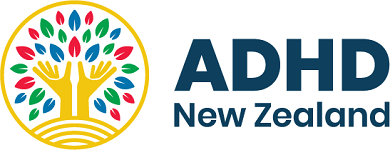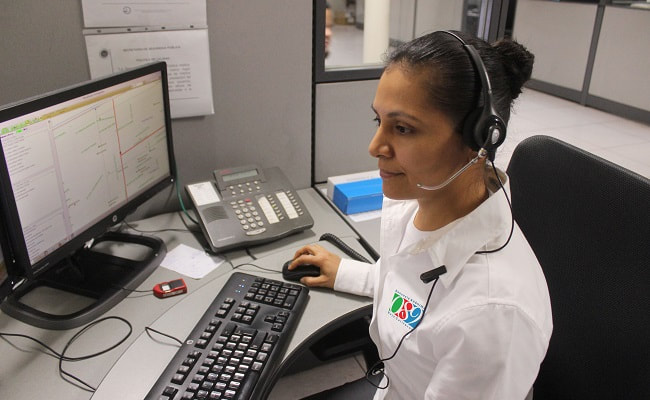An ADHD diagnosis must be an enormous relief for you to know, despite some nerves about what happens next.
Although there is no cure, there are different types of treatment to suit the individual and range from medications to help stimulate the control centre of the brain to tried and true strategies and techniques to help manage ADHD. Treatment can be tailored to you and should address all areas you may need support with.
Your ADHD treatment goals
Your first step is optimising attention, executive functions, and emotional self-regulation. This can be done through psychological therapy, psychotherapy, skill training, parent training, or coaching.
Your second is creating a healthier lifestyle to promote brain health, including regular exercise, a balanced diet and reducing unhealthy habits.
ADHD treatment for adults and children
They’ll share their thoughts with you around the diagnosis and a treatment plan to suit. These can range from:
Although there is no cure, there are different types of treatment to suit the individual and range from medications to help stimulate the control centre of the brain to tried and true strategies and techniques to help manage ADHD. Treatment can be tailored to you and should address all areas you may need support with.
Your ADHD treatment goals
Your first step is optimising attention, executive functions, and emotional self-regulation. This can be done through psychological therapy, psychotherapy, skill training, parent training, or coaching.
Your second is creating a healthier lifestyle to promote brain health, including regular exercise, a balanced diet and reducing unhealthy habits.
ADHD treatment for adults and children
They’ll share their thoughts with you around the diagnosis and a treatment plan to suit. These can range from:
- a list of accommodations for work (or school) that will help you (or your child) perform well, such as the ones listed below
- a plan for follow-up therapy with a psychologist, therapist, ADHD coach, or another expert
- recommendations for ADHD medication, if considered appropriate, and
- if medication is started then regular follow ups to check on the effective of the dosage and type of medication is needed.
- a schedule of follow-up appointments with the diagnosing physician or your primary-care doctor will be made to see how well the treatment plan is working
- if you're seeing a Psychologist, regular therapy sessions will be scheduled for you with your therapist.
Some alternatives to medication for ADHD treatment
- Tips for you - check out some of our tips for parents of children with ADHD or adults with ADHD.
- Tips if you work in education, check out our information for ADHD in schools or ADHD in tertiary education.
- Attend support groups to share experiences and strategies with others who are in similar situations and can sympathise and support.
- Educate your family - many other families have been through this so read what they have had success with and share these with your family.
- Parenting programmes are worthwhile, especially if they have incorporated strategies that can help you manage ADHD in your family.
- Other disciplines that have helped children and adults with ADHD are:
- acupuncture
- brain gym
- chiropractics
- counselling
- Cranial Osteopathy
- diet, including supplements (especially zinc and EFA’s)
- homeopathy
- naturopathy
- Occupational Therapy, and/or
- therapists of all kinds can help if ADHD is clearly understood (preferably on recommendation only).
A multi-tiered, or multi-modal approach is likely include some of the following:
Click on each heading or "+" to find out more.
Accepting ADHD
Simply having the diagnosis can provide comfort in the reasoning that not all past behaviours were within your control.
Be advantageous and learn to use the positive attributes of ADHD.
Find support from organisations. Help everyone around you to understand ADHD and let them know their roles are and what you want them to do that would help you.
Be advantageous and learn to use the positive attributes of ADHD.
Find support from organisations. Help everyone around you to understand ADHD and let them know their roles are and what you want them to do that would help you.
EDUCATIONAL ASSESSMENT
Children with ADHD may also have a co-existing condition which includes a learning disability, language disorder or weakness in maths.
They can do very well on a 1:1 basis with a remedial teacher and we advise parents to get help from their school or go privately.
They can do very well on a 1:1 basis with a remedial teacher and we advise parents to get help from their school or go privately.
Nutritional intake
Like it or not, we are what we eat. Dietary measures will not take away the ADHD but can make it more manageable.
Carefully look at your nutritional intake to ensure appropriate amounts for growth and proper function throughout the day.
We suggest that you:
There is now overwhelming evidence of the effects of food on children’s behaviour.
The easiest way to find out what foods your child may be intolerant to is to make a ‘food diary’ and start to eliminate certain foods that research has shown to be effective in improving mood, health, learning and behaviour.
We suggest you consult a professional health practitioner i.e. naturopath, nutritionist or dietitian if you're not confident in managing it on your own.
Carefully look at your nutritional intake to ensure appropriate amounts for growth and proper function throughout the day.
We suggest that you:
- eat a clean diet by eliminating sugary or processed foods and adding whole foods
- for some, reducing or eliminating gluten, dairy, or eggs, which can cause brain fog in sensitive individuals, makes a difference, and
- support the brain with micronutrient supplements. If a healthy diet is hard to implement (i.e. picky eating) or if someone is at risk for deficiencies, then adding micronutrients such as zinc, magnesium, or iron can be helpful.
There is now overwhelming evidence of the effects of food on children’s behaviour.
The easiest way to find out what foods your child may be intolerant to is to make a ‘food diary’ and start to eliminate certain foods that research has shown to be effective in improving mood, health, learning and behaviour.
We suggest you consult a professional health practitioner i.e. naturopath, nutritionist or dietitian if you're not confident in managing it on your own.
exercise
Exercise helps your cognitive function and hyperactive/restless symptoms while promoting healthy sleep and stress reduction, and
Improve sleep by exercising during the day, creating a regular sleep schedule, practicing good sleep hygiene and/or using melatonin.
Improve sleep by exercising during the day, creating a regular sleep schedule, practicing good sleep hygiene and/or using melatonin.
CHEMICAL SENSITIVITY, TOXICITY, ALLERGIES
Be aware that exposure to a range of chemicals and toxic metals that can affect the brain and immune system i.e. chlorine, lead and mercury.
Counselling
Family counselling can play an important part in family dynamics, providing the counsellor has good knowledge of ADHD.
It can play an important role in developing your mindfulness, which improves core ADHD symptoms and emotion regulation.
You can find counsellors in our extensive list of healthcare providers around New Zealand.
It can play an important role in developing your mindfulness, which improves core ADHD symptoms and emotion regulation.
You can find counsellors in our extensive list of healthcare providers around New Zealand.
Behaviour Modification
Parenting courses play an important role in managing your child with ADHD.
Check out our events to see if there are any courses that you think can help.
Check out our events to see if there are any courses that you think can help.
Therapies
Here are examples of just a few therapies available that can help you to manage ADHD:
Psychoeducation by an assessing Specialist helps you to understand what is ADHD and what is not, also enabling you to identify when you need support and should be compassionate and understanding of yourself.
Behavioural therapy through a Psychologist or Coach helps identify ways you can change your behaviour so that you are better supporting yourself and use your ADHD strengths to your advantage. Modifications and supports such as fidgets, weighted blankets, headphones, stand up desks are all examples of modifications that can assist with better integration of energy versus productivity.
Cognitive Behavioural Therapy (CBT) is a type of therapy used by Psychologists to can help you to change the way you think, feel and behave in respect to any mood or behavioural concerns e.g., anxiety, low mood, anger.
Executive Functioning skills training with a Coach, Counsellor or Psychologist can be useful in working out how best to use your environment and tools as supports.
Occupational therapy is an evaluative process of collecting and organising relevant information about your functional ability. This includes gross and fine motor control (from poor handwriting skills to riding a bike), eye-hand coordination (catching a ball), visual-spatial relationships, body image, self-concept and much more.
Speech therapy can help children with ADHD who have either delayed speech or talk well before and beyond their years. The former may need early intervention at a speech therapy clinic.
You can find a number of therapists in our extensive list of healthcare providers around New Zealand.
Psychoeducation by an assessing Specialist helps you to understand what is ADHD and what is not, also enabling you to identify when you need support and should be compassionate and understanding of yourself.
Behavioural therapy through a Psychologist or Coach helps identify ways you can change your behaviour so that you are better supporting yourself and use your ADHD strengths to your advantage. Modifications and supports such as fidgets, weighted blankets, headphones, stand up desks are all examples of modifications that can assist with better integration of energy versus productivity.
Cognitive Behavioural Therapy (CBT) is a type of therapy used by Psychologists to can help you to change the way you think, feel and behave in respect to any mood or behavioural concerns e.g., anxiety, low mood, anger.
Executive Functioning skills training with a Coach, Counsellor or Psychologist can be useful in working out how best to use your environment and tools as supports.
Occupational therapy is an evaluative process of collecting and organising relevant information about your functional ability. This includes gross and fine motor control (from poor handwriting skills to riding a bike), eye-hand coordination (catching a ball), visual-spatial relationships, body image, self-concept and much more.
Speech therapy can help children with ADHD who have either delayed speech or talk well before and beyond their years. The former may need early intervention at a speech therapy clinic.
You can find a number of therapists in our extensive list of healthcare providers around New Zealand.
MEDICATION
Getting medication, and the type of medication, depends on the person’s age, severity of ADHD symptoms and the level of impact on day to day functioning.
Medications may not work for all ADHD symptoms or affect everyone the same way. A combination of medication, therapy, behaviour changes, and skills training is often the most effective treatment. This is called multimodal treatment.
Your healthcare provider may suggest other medications or combinations for specific reasons.
Medications may not work for all ADHD symptoms or affect everyone the same way. A combination of medication, therapy, behaviour changes, and skills training is often the most effective treatment. This is called multimodal treatment.
Your healthcare provider may suggest other medications or combinations for specific reasons.
Many ADHD support organisations can support you and help your family manage ADHD in your life.




